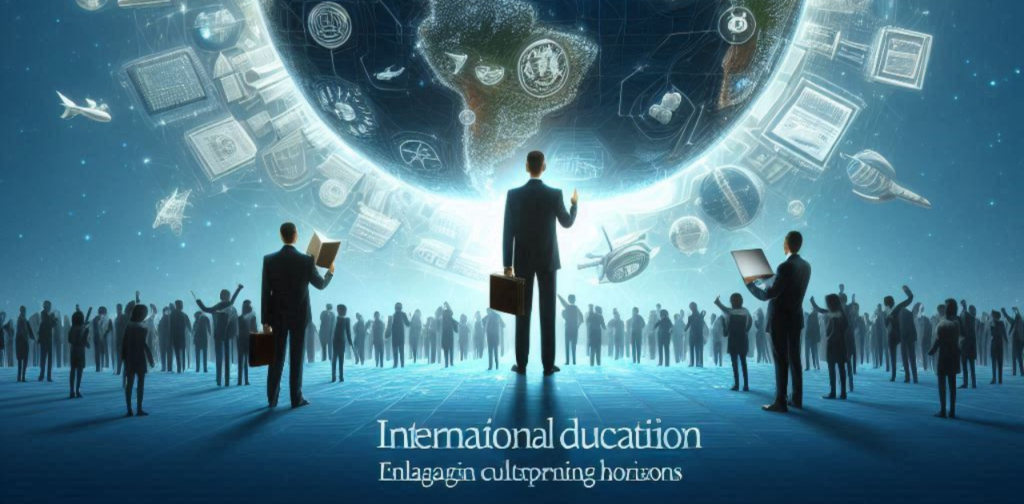International Education: Enlarging Cultures and Expanding Horizons
Introduction
International education encompasses a wide range of educational experiences that transcend national borders. It includes students, scholars and educators engaged in learning and research across cultures and countries. This dynamic field promotes global citizenship, intercultural understanding and academic excellence.
Body
International education
offers many opportunities:

- Study Abroad Programs: Amazing experiences for students to study abroad.
Exchange Programme: Exchange of students and faculty between institutions. - International Collaboration: Joint research projects, conferences, and academic partnerships.
- Online Learning: Access to global education through virtual platforms.
- English Language Teaching: Teaching English as a Foreign Language.
Benefits of international education include:
- Global Perspective: Developing a broader worldview and intercultural competence.
- Language Skills: Acquiring new languages and improving communication skills.
- Career Development: Expanding job and career opportunities.
- Personal Development: Developing independence, adaptability and resilience.
Educational Enrichment: Access to diverse educational resources and research opportunities.
Challenges in International Education
Despite its many advantages, international education faces challenges:

- Cost: High tuition fees and living expenses can be prohibitive for many students.
Visa Restrictions: Complicated immigration policies can hinder student mobility. - Language barriers: Difficulty adapting to a new language and culture.
- Educational Adjustment: Challenges in transitioning to a different educational system.
- Safety and Security Concerns: Potential risks associated with studying abroad.
Table: Comparison of Domestic and International Education
| Feature | Home Education | International Education |
|---|---|---|
| Environment | Familiar culture and language Diverse cultures and languages | |
| The point of view Primarily national focus Global perspective | ||
| Opportunities | Access to local resources Exposure to international networks | |
| Challenges | Limited cultural exposure Adapting to the new environment |
Result
International education is a powerful catalyst for personal and social development. By breaking down cultural barriers, fostering global citizenship, and fostering academic excellence, it improves the lives of individuals and contributes to an interconnected world. Addressing the challenges and maximizing the opportunities of international education is essential to creating a global community of learners.
Frequently Asked Questions
- What is the difference between study abroad and exchange programs? Study abroad programs usually involve students enrolled in courses at a foreign university, while exchange programs involve mutual arrangements between institutions. There are.
- How can I prepare to study abroad? Language skills, cultural awareness, and research on your chosen destination are essential preparations.
- What are the financial aid options for international students? Scholarships, grants, and student loans are available, but competition is often high.
- How can international education benefit employers? Employees with international experience often possess valuable intercultural skills and a global mindset.
- What is the future of international education? The trend toward online learning and virtual exchange programs is likely to shape the future of international education.

International
education is a lifelong journey that offers endless possibilities for personal and professional growth. By embracing challenges and opportunities, individuals can truly learn globally and become citizens of the world.
Would you like to focus on a specific aspect of international education for a more in-depth article?